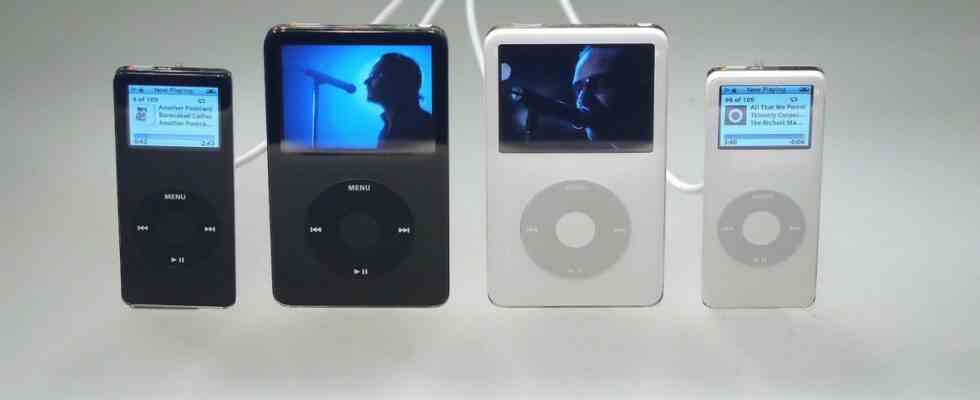That’s it. After more than 20 years, an era is ending at Apple. The group has announced that it no longer wants to produce iPods. When Apple founder Steve Jobs pulled the music player out of his trouser pocket with the famous words “one more thing” on October 23, 2001 and presented it to the public, very few believed how sustainable the product was would change the company and the way people listen to music.
With the iPods, the rather ailing company Apple expanded its business beyond computers, the music market experienced a digitization push, at the latest through the expansion of the iTunes platform, with which the iPod was managed, to a digital music store. Jobs had personally convinced the heads of many music labels in lengthy discussions that only a legal download offer could stop music piracy on the Internet.
In fact, the MP3 player wasn’t a mega seller right from the start: just a few weeks after the terrorist attacks of September 11, 2001, consumers were still holding onto their money. The first iPod that could store 1000 songs cost at least 399 dollars in the USA and almost 500 euros in Germany.
Only 376,000 iPods were sold in the first year. Apple only achieved its real breakthrough in the Christmas business of 2004, when quarterly sales increased more than sixfold to 4.6 million players compared to the previous year.
As far as the technical specifications of the players were concerned, a number of Apple’s competitors were able to keep up or even trump the iPod. But the devices advertised as “iPod killers” often turned out to be slow sellers. Even the former industry leader Sony had no chance with its Walkman successors.
Apple continued to pull away and in the first few years conquered 75 percent of the market in the USA alone. The design of the iPod proved to be decisive for its success. “It’s not just how (a product) looks and feels. Design is how it works,” explains Steve Jobs in an interview with the Londoner Times. “Plug in. Wirrrrrr. Done.”
The success of the devices – initially with the click wheel as a control element, which has now become iconic for some fans, and later also with a touchscreen, paved the way for entry into the smartphone market with the iPhone. The mobile phones have integrated the possibility of listening to music via various apps, so Apple refers to them as a replacement for the iPod, as well as to its watches.
Apple had already discontinued the iPod classic, which was based on the original, in 2014 and smaller models such as the iPod nano in 2017. The iPod touch is a kind of slimmed-down iPhone without cellular technology. Its production is now the last to end, the remaining devices are to be sold off.

